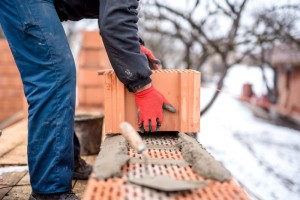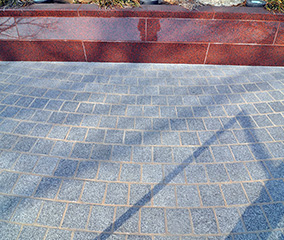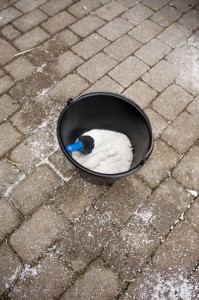
There are certain precautions a contractor makes when working in the winter.
As cold weather approaches, it becomes more and more difficult to work with masonry. Working on masonry projects during the winter is still possible, but there are more considerations to keep in mind. When the weather dips below 40 degrees, the hydration in the mortar will expand and crack. The mortar can be rewetted before this happens, but if it is wetted too much, the mortar won’t stick to the unit. This is why it is better to hire an experienced, dependable contractor during the winter. An experienced contractor will know precisely how much to wet the mortar and what surface needs to be wetted. If you are looking to try your hand at a personal masonry project, waiting for warmer weather is the wisest choice. Masonry contractors, however, work year round. Here are some of the things that they look out for during the winter.
- Speed Hydration. Many masons use speed hydration by using high-early cement or by adding an accelerator to the mortar. However, these methods do have the potential to change the color of the mortar.
- Keep Units Dry and Warm. The best way to prevent masonry mistakes during the winter is to cover units with a tarp to protect them from rain and snow until they are ready to be used. A mason can also heat up some materials to ensure that the mortar is properly hydrated and binds correctly.
- Know Your Products. Many commercially available admixtures that are marketed as “antifreeze” admixtures are actually just accelerators, rather than freezing point depressants. A contractor with experience knows how to tell the difference.
- Keep Warm. It’s important to keep the masonry units and mortar warm, but it’s even more important to keep the masons doing the work warm as well! If working in high winds, it’s advised to set up a tarp as a windbreaker. If the temperature drops to below 20 degrees, it’s advisable to set up a heater or get to a warm, indoor space.
Build Your Next Concrete Masonry Project with Del Prete Masonry!
While there are many other materials that we use at Del Prete Masonry, we’re not about to abandon concrete anytime soon. It has proven its worth many times over and we know that we can bring you a solid masonry structure with it. To find out more about your masonry options including concrete masonry, please contact our office today at 410-683-0650 or email us at mike@delpretemasonry.com. We serve Baltimore City, County, Harford County, Carroll County, Anne Arundel County, and Howard County. Keep up with our blog for masonry related information, and follow us on Facebook, Twitter, and Google+.
































